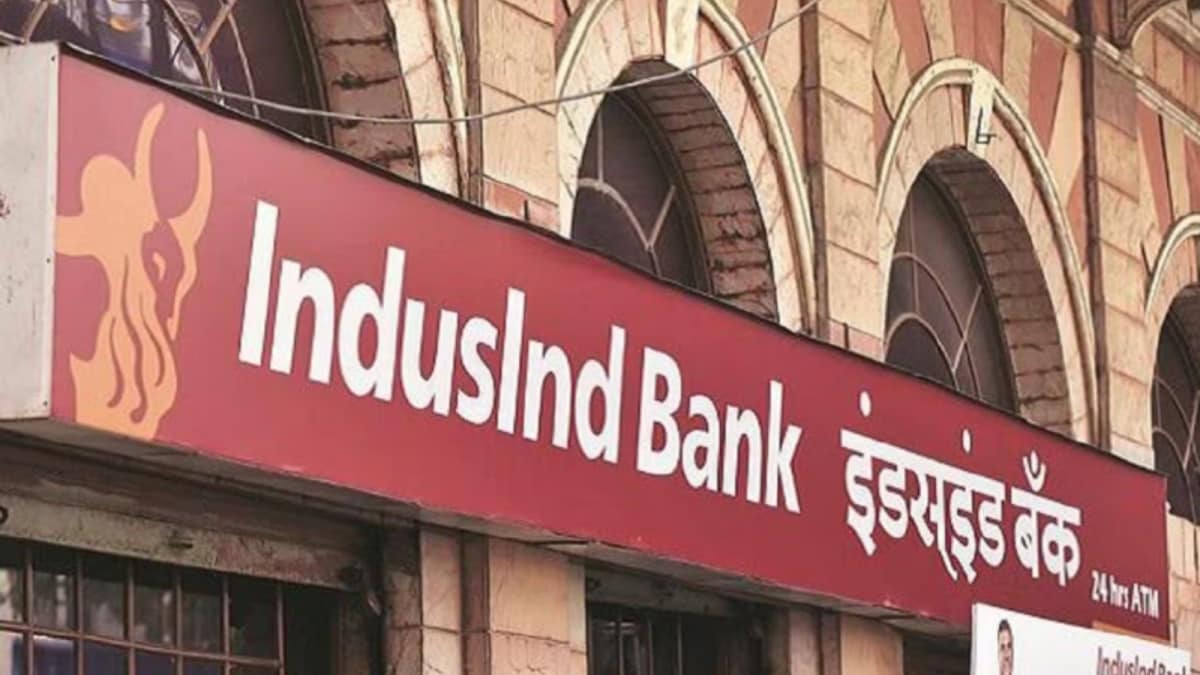 |
|
The recent plunge in IndusInd Bank's share price has sent ripples of concern through the Indian stock market, prompting investors to question the stability of banking stocks in general. The immediate trigger for the sharp decline was the revelation of discrepancies arising from an internal review of multi-year derivative transactions. These discrepancies, estimated to potentially impact the bank's net worth by Rs 1,600-2,000 crore, have raised serious questions about the internal controls and risk management practices at IndusInd Bank. The fall, hitting a 52-week low and tanking 23% in morning trade on March 11th, underscored the sensitivity of the market to perceived vulnerabilities within the banking sector. The reported violations of Reserve Bank of India (RBI) regulations related to derivative trades further amplified the negative sentiment. While the bank's deputy CEO, Arun Khurana, has stated that the discrepancies are not linked to client accounts, the lack of transparency surrounding the nature of these inconsistencies has fueled speculation and eroded investor confidence. Independent experts, quoted in the Economic Times, have warned that the internal review discrepancies will significantly damage the bank's credibility, acting as a “sledgehammer” on the stock. This highlights the critical importance of trust and transparency in the financial industry, where even the perception of wrongdoing can have severe consequences for a company's valuation and reputation. Macquarie, a global financial services company, noted that the development “raises questions on internal processes,” further reinforcing concerns about the bank's operational efficiency and oversight mechanisms. Jefferies, an American multinational independent investment bank, was even more critical, stating that the situation “clearly reflects weak internal controls.” These assessments from respected financial institutions underscore the seriousness of the issues facing IndusInd Bank and their potential long-term impact. The incident involving IndusInd Bank also serves as a broader cautionary tale about the inherent risks associated with investing in banking stocks. Banks, by their very nature, operate with a high degree of leverage, making them particularly vulnerable to unexpected shocks and economic downturns. The complexity of modern financial instruments, such as derivatives, can further obscure the true extent of a bank's exposure to risk, making it difficult for investors to accurately assess the potential downsides.
Devina Mehra, Founder and CMD of First Global, provides a compelling argument for maintaining a cautious approach to banking stocks. Her perspective, articulated on LinkedIn, emphasizes the inherent asymmetry of risk and reward in the banking business. Banks benefit from lending activities, but their upside is capped. They don’t share in the extraordinary profits of successful borrowers; they simply receive the agreed-upon interest payments. However, when borrowers default or face financial difficulties, the bank bears the full brunt of the losses. This creates a scenario where negative surprises are inherently more impactful than positive ones. Mehra also highlights the deceptive nature of rapid bank growth. While high growth rates might appear attractive on the surface, they can often mask underlying problems that only become apparent years later. This is because aggressive lending practices, aimed at achieving rapid expansion, can lead to a deterioration in credit quality and an accumulation of non-performing assets. These hidden risks can remain concealed for a considerable period, only to surface during periods of economic stress or regulatory scrutiny. Furthermore, Mehra points out the inherent risks associated with leveraged trading and investment positions, which are common within the banking sector. Banks operate as highly leveraged institutions, which amplifies both their potential gains and their potential losses. A single trading error or a misjudgment of market conditions can wipe out substantial capital reserves, as demonstrated by the collapse of Barings Bank in the 1990s. The Silicon Valley Bank's recent troubles are also illustrative of these risks. Their bond book, rather than credit, caused the issues. The bank’s investments in long-term bonds became problematic as interest rates rose, leading to significant unrealized losses and ultimately triggering a run on the bank. This incident highlights the vulnerability of banks to interest rate risk and the importance of prudent asset-liability management.
The IndusInd Bank episode, coupled with the broader concerns raised by experts like Devina Mehra, underscores the need for investors to exercise caution when evaluating banking stocks. A thorough understanding of the bank's financial statements, risk management practices, and internal controls is essential. Investors should pay close attention to the bank's exposure to complex financial instruments, such as derivatives, and assess the adequacy of its capital reserves. Furthermore, it's crucial to consider the overall macroeconomic environment and the potential impact of economic shocks on the bank's asset quality and profitability. Regulatory scrutiny plays a vital role in ensuring the stability of the banking sector. Strong and effective regulatory oversight can help to mitigate risks and prevent banks from engaging in reckless lending or trading activities. However, even the most stringent regulations cannot eliminate all risks, and investors must remain vigilant in their own due diligence efforts. The IndusInd Bank situation also emphasizes the importance of corporate governance and ethical conduct within financial institutions. A culture of transparency, accountability, and ethical decision-making is essential for maintaining investor confidence and preventing financial misconduct. When internal controls fail or ethical standards are compromised, the consequences can be devastating for both the bank and its shareholders. In conclusion, while banking stocks can offer attractive investment opportunities, they also come with significant risks. Investors must be aware of these risks and conduct thorough due diligence before investing in any banking stock. The IndusInd Bank episode serves as a timely reminder of the importance of prudence, caution, and a deep understanding of the complexities of the financial industry. Ultimately, a well-informed and risk-aware investor is best positioned to navigate the challenges and opportunities presented by the banking sector. Ignoring such recent episodes will always be at the peril of the investor.
Source: Why Is IndusInd Bank Share Falling? Should Investors Be Wary Of Banking Stocks?
